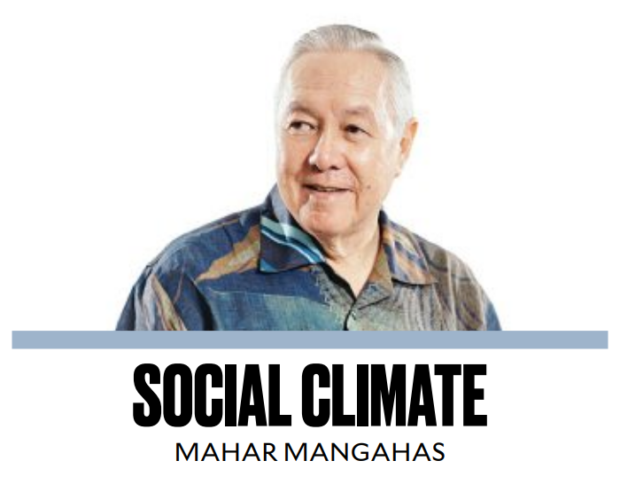Pan Xenia, a century-old fraternity of the University of the Philippines (UP), is celebrating its 100th anniversary today. This unique fraternity, named after the Greek words for “all-embracing goodwill,” embodies the value of treating others well, even strangers. The term “Pan” means “throughout,” emphasizing the fraternity’s commitment to extending goodwill to everyone. Similarly, “Xenia,” derived from “xenos” meaning “stranger,” encourages the practice of hospitality and kindness towards others, regardless of their status.
The concept of Xenia involves treating strangers with kindness and generosity, offering them a warm welcome, refreshments, and friendly words without knowing their true identity. Likewise, when in an unfamiliar setting, individuals practicing Xenia would graciously accept hospitality and reciprocate if possible, without knowing their host’s identity. This practice of expressing goodwill is rooted in the belief that the other party might be a god in disguise, a notion that entertained the Greek gods. It echoes the biblical teaching, “What you do for the least of my brethren…?”
As a proud member of Pan Xenia since 1963, I have had the privilege of sharing this brotherhood with exceptional individuals. Among the esteemed Pan Xenians who preceded me are Cesar E.A. Virata, whose name now adorns the Virata School of Business; Francisco A. Nemenzo Jr., former UP president; and Gerardo P. Sicat and Niceto S. Poblador, my economics teachers. Among my younger fraternity brothers are Manuel B. Villar, known as “the brown taipan”; Almarim Tillah, former Tawi-Tawi governor; Antonio Velasquez, ABS-CBN newsman; and Fidel Nemenzo, former UP Diliman chancellor.
Throughout history, Pan Xenia has boasted notable members who have made significant contributions to the country and UP. This includes President Elpidio Quirino, Senate President Gil J. Puyat, and Chief Justice Claudio Teehankee. The fraternity has also been represented by the first five Central Bank governors, starting with Miguel Cuaderno in 1949, and the first 11 UP business administration deans, starting with Conrado S. Benitez in 1929. Other notable members include former UP presidents Carlos P. Romulo, Onofre D. Corpuz, and Emanuel V. Soriano, as well as the first UP School of Economics dean, Amado A. Castro, and former UP public administration dean Raul V. de Guzman. Also worth noting is Melito Salazar Jr., former director of UP’s small-scale industries.
Since its establishment in 1923, Pan Xenia has made substantial contributions to the country and UP. While the current community of resident and student members may be small in number, their quality is unparalleled, and the fraternity remains committed to recruiting new members and renewing its impact for the next century.
—————-
When did Marcos’ martial law “really” begin? It was exactly 51 years ago today, on a Saturday, when martial law truly dawned upon the Filipino people. The date Ferdinand E. Marcos claimed to have signed the martial law proclamation was purely a coincidence, as it aligned with his lucky number seven. Marking martial law on September 21 perpetuates a false historical narrative (refer to my articles “Remember Sept. 23” and “Forget Sept. 21,” published on September 23, 2017, and September 27, 2014, respectively).
In 2017, I wrote: “Opinion pollsters cannot remain neutral in the face of democracy versus authoritarianism. Opinion polling serves as a tool for promoting and advancing democracy, thriving in democratic environments and deteriorating in others (see ‘Surveys suppressed by martial law,’ Opinion, 10/6/12). Social Weather Stations, a politically nonpartisan institute, opposes authoritarianism due to its inherent self-interest in protecting and strengthening democracy.”
—————-
Wednesday, Sept. 27, 2023, Kapihan sa SWS: “They never left: popular impressions of Ferdinand E. Marcos as President after February 1986.” This kapihan will be conducted by SWS fellows Jorge V. Tigno, Geoffrey M. Ducanes, Steven Rood, and Vladymir Joseph A. Licudine (+), all experienced survey researchers.
In this discussion, the authors will analyze data from SWS national surveys conducted in 1986, 1995, 2016, and 2022 to determine the Filipino people’s perceptions of Marcos as: (a) “a defender of the poor and oppressed,” (b) “caring for friends who enriched themselves by pocketing government funds,” (c) “a thief of the nation’s wealth,” (d) “true to the duties of a patriotic president,” (e) “a humble president,” and (f) “a severe, brutal or oppressive president.”
The kapihan will take place in a hybrid format at the SWS Knowledge Center in Quezon City. Interested participants can register in-person or via Zoom through the www.sws.org.ph website under the News and Events section.
Denial of responsibility! Vigour Times is an automatic aggregator of Global media. In each content, the hyperlink to the primary source is specified. All trademarks belong to their rightful owners, and all materials to their authors. For any complaint, please reach us at – [email protected]. We will take necessary action within 24 hours.


